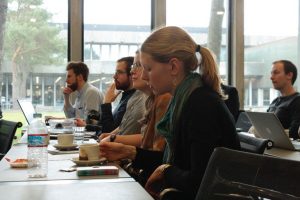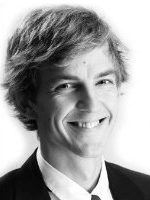Highlights from Danish Battery Symposium 2016
 The third annual symposium in the Danish Battery Society was hosted by DTU Energy in the comfortable meeting center at DTU Lyngby Campus. The ambition of this years symposium was different from previous years with a more open program to enable more networking and direct knowledge sharing.
The third annual symposium in the Danish Battery Society was hosted by DTU Energy in the comfortable meeting center at DTU Lyngby Campus. The ambition of this years symposium was different from previous years with a more open program to enable more networking and direct knowledge sharing.
The speakers Don Siegel from University of Michigan and Kevin Schimchar from Robert Bosch GmbH kicked of the meeting with interesting talks on such different subjects as Rechargeable magnesium ion batteries and Integration of battery-based energy storage. The presentations are made available here as we receive the revised versions.
The rest of the day was packed with updates from the member institutions and companies, an interesting guided lab tour in the EV-lab at DTU, and knowledge sharing through a number of working groups. Updates were given by Poul Norby from DTU Energy, Steinar Birgisson and Emil Drazevic from Aarhus University, Dorthe B. Ravnsbæk from University of Southern Denmark, Martin Zacho from Schneider Electric, Daniel Stroe from Aalborg University and Jonathan Højberg form Haldor Topsøe A/S.
Four working groups were made during the day forming a very nice foundation of direct knowledge sharing within the society. The four working groups were In-situ x-ray cells, Electronic and ionic conduction of electrode materials, Application of batteries and Flow batteries. In addition to facilitate knowledge sharing, each working group should come up with specific tasks to ensure a continuation of the knowledge sharing after the symposium. It is possible to follow the work and contribute to one or more working groups by signing up here.
Pictures from the symposium are available here.

Jonathan Højberg
Jonathan Højberg received his Cand. Polyt. in Physics and Nanotechnology from the Technical University of Denmark (DTU) in 2011 with a specialization within atomic scale physics related to sustainable energy solutions.
He is currently pursuing a PhD within the field of Lithium-air batteries in a collaboration between DTU Energy Conversion and Haldor Topsøe A/S. He has been heavily engaged in building up state-of-the-art test facilities for Lithium-air batteries at both places and deciding which experiments to conduct.
Jonathan is highly motivated by the interplay between universities and industry, and how the synergies can accelerate the development of new and sustainable energy technologies. In 2009 he founded a company to leverage a newly developed technology to harvest ocean wave energy. The proof-of-concept was developed by making bachelor projects and courses for 15 students at DTU with different competences and coordinating this work. The work resulted in a top-3 in the national start-up competition Venture Cup in the cleantech category and the ideas were adapted in a national collaboration granted 48 MDKK by the Advanced Technology Foundation in 2011 to further develop the technology.
Besides ocean wave power and batteries, Jonathan has worked extensively with the development of cathode materials for Solid Oxide Fuel Cells at the Fuel Cells and Solid State Chemistry Division at Risø, DTU (now part of DTU Energy Conversion). The work focussed on building electrochemical models to describe the cathode, and identify and optimize the most important parameters.
Permanent link to this article: http://batteriselskab.dk/arrangementer/highlights-from-danish-battery-symposium-2016.htm
 The third annual symposium in the Danish Battery Society was hosted by DTU Energy in the comfortable meeting center at DTU Lyngby Campus. The ambition of this years symposium was different from previous years with a more open program to enable more networking and direct knowledge sharing.
The third annual symposium in the Danish Battery Society was hosted by DTU Energy in the comfortable meeting center at DTU Lyngby Campus. The ambition of this years symposium was different from previous years with a more open program to enable more networking and direct knowledge sharing.